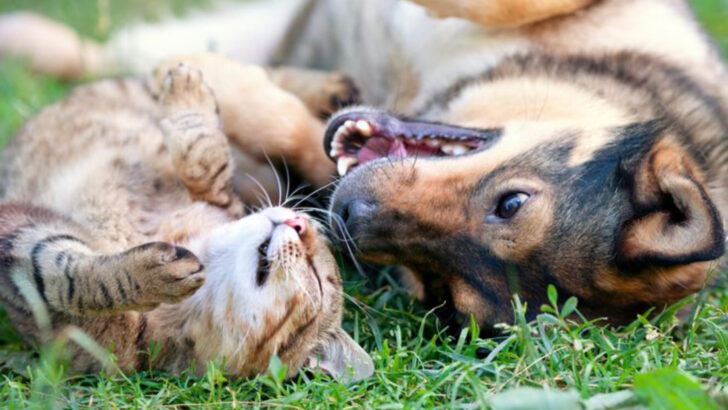Some cats ditch the cattiness—and fall head over paws for dogs.
Forget the stereotypes. Not every cat wants to nap solo on a windowsill or hiss at the neighbor’s retriever. Some felines light up when a wagging tail walks into the room. They follow dogs like shadows, curl up beside them, and even share toys like it’s no big deal.
Why? Because cats are weird. Wonderful, weird little creatures with their own rules—and some just decide dogs make better company than other cats.
From playful personalities to secret social codes, we’re diving into 14 curious reasons why a cat might trade meows for tail wags.
Get ready—these feline-canine friendships are more than cute. They’re downright fascinating.
Shared Curiosity
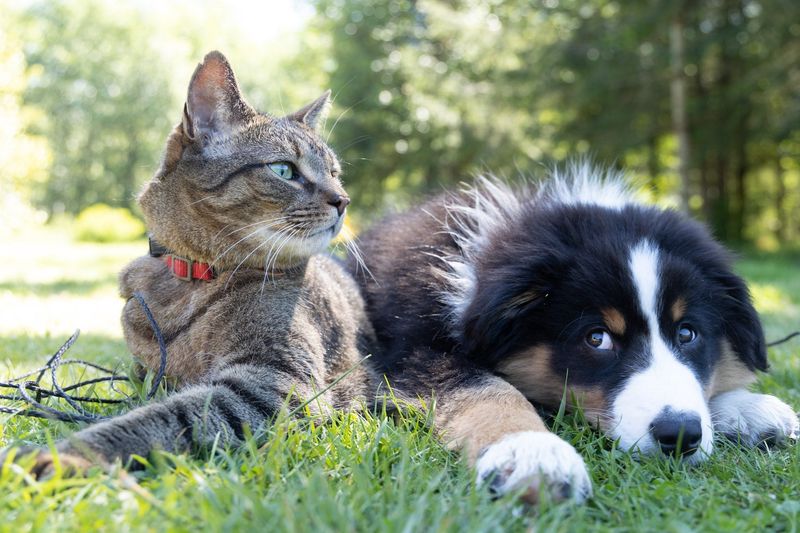
Curiosity often unites cats and dogs in a shared quest for discovery. Cats, with their inquisitive nature, may find a kindred spirit in dogs who are equally eager to explore their surroundings.
A dog’s enthusiastic sniffing and a cat’s cautious investigation can lead to a mutual understanding. Both creatures can become partners in crime, exploring gardens or chasing shadows.
This shared curiosity can create a bond that transcends their differences. Cats might appreciate a dog’s willingness to embark on new adventures, making them preferred companions over other cats who might not share the same adventurous spirit.
Protective Instincts
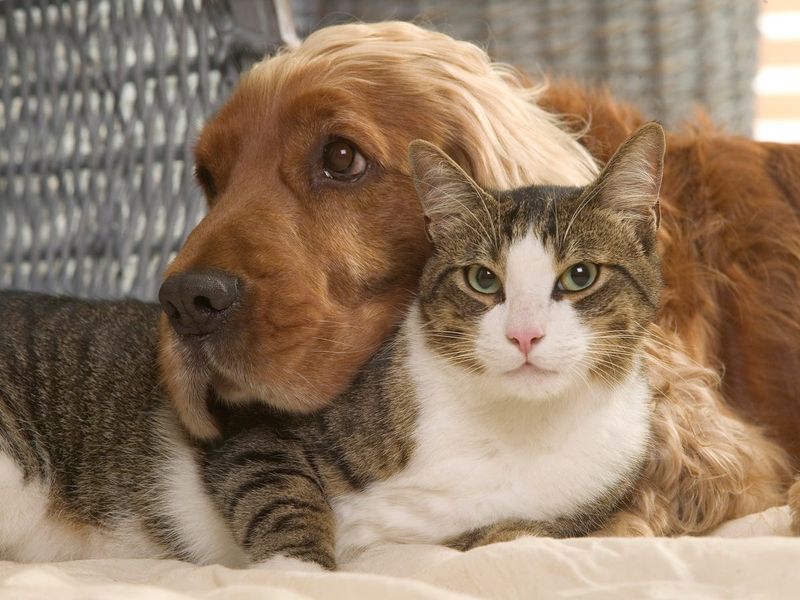
Some cats are drawn to dogs because of their protective instincts. A dog’s natural tendency to guard and watch over its family can extend to feline friends. This can be particularly comforting for cats who seek a sense of security.
A dog’s attentive presence can make a cat feel safe, fostering a deep sense of trust. This relationship is mutually beneficial, as the dog finds a new member to protect, while the cat gains a loyal guardian.
Such bonds exemplify how different species can complement each other, fulfilling needs that might not be met by other cats.
Playful Energy
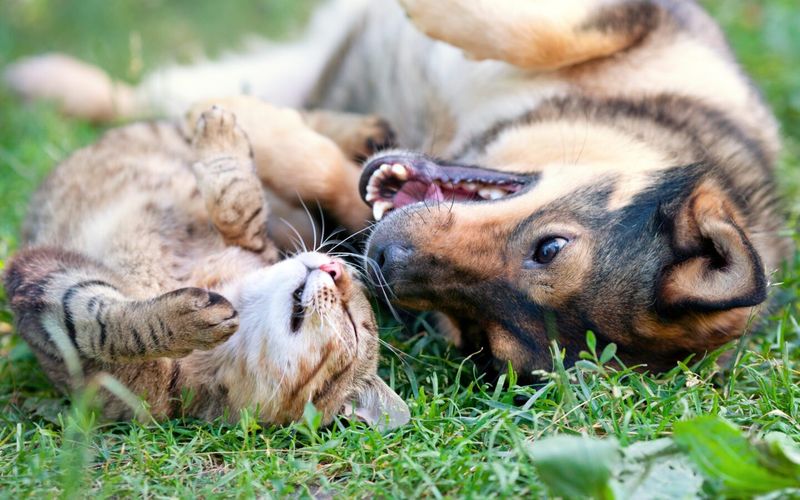
Playfulness is a trait that many cats and dogs share, serving as a foundation for their friendship. Cats with a high energy level might find dogs to be perfect playmates.
The dynamic games of chase or playful wrestling matches are activities where both pets can engage joyfully. Unlike some cats who may prefer solitude, dogs often welcome this interactive play, offering a constant source of entertainment.
The shared joy in play can strengthen their bond, making dogs more appealing companions for playful cats. The mutual enjoyment of fun activities fosters a lasting connection between them.
Shared Living Space
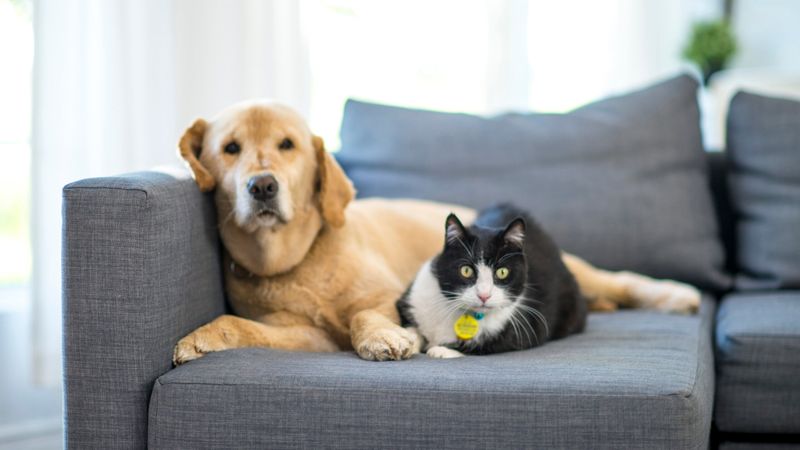
In homes where cats and dogs coexist, proximity can breed familiarity. Sharing a living space encourages interaction and mutual respect, leading to potential friendships.
When both pets are accustomed to each other’s presence, they may develop a routine that includes shared nap times or meals. A dog’s easygoing nature can often harmonize with a cat’s independent spirit, creating a peaceful coexistence.
This shared environment allows them to learn each other’s habits, fostering an understanding and camaraderie that might not be possible with other cats. Living together can transform them from housemates into friends.
Complementary Personalities
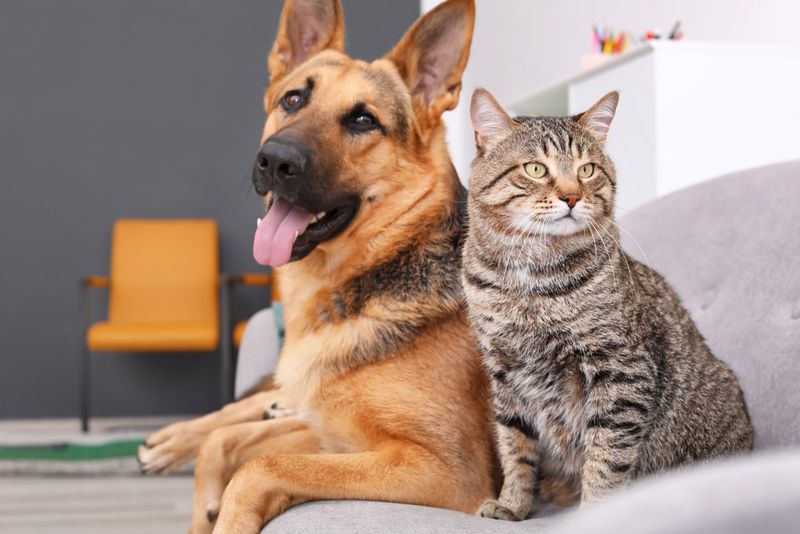
Cats and dogs can sometimes have complementary personalities that enhance their relationship. A laid-back cat might find joy in the lively antics of a spirited dog. Conversely, a more active cat may enjoy the calming influence of a gentle dog.
These complementary traits can create a balanced dynamic, where each pet brings out the best in the other. Cats might appreciate a dog’s enthusiasm and loyalty, while dogs could admire a cat’s grace and independence.
Such relationships highlight how opposites can attract, leading to unexpected but fulfilling friendships.
Social Learning
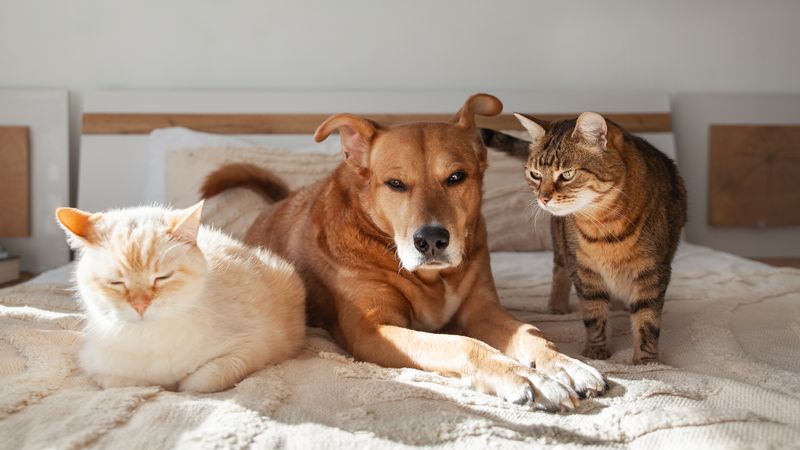
Cats can learn a lot about social behavior from dogs, who are often more attuned to human interactions. By observing a dog’s interactions with people, cats may become more sociable and open to human contact.
This learning process can lead to a cat developing a closer bond not only with the dog but also with its human family. The cat might mimic the dog’s friendly gestures, such as greeting family members or seeking affection.
Thus, a dog’s influence can help a cat become more sociable, enhancing their relationship and making dogs preferred companions.
Emotional Support
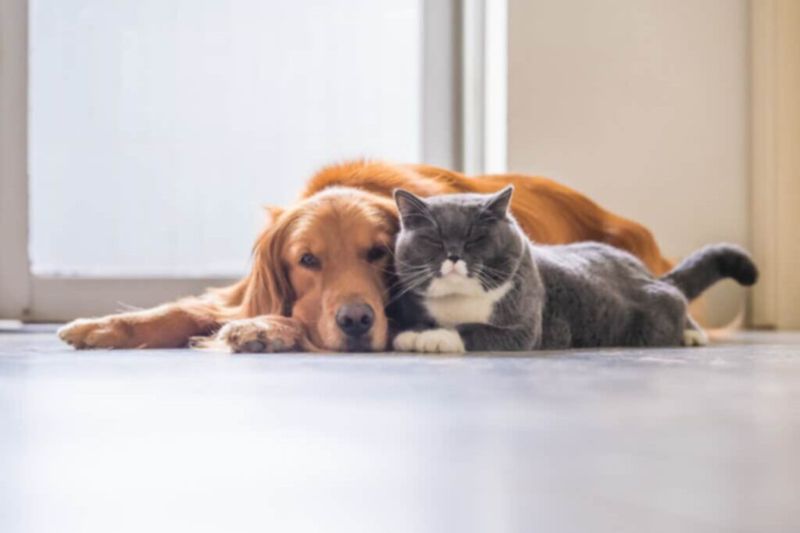
Dogs are often praised for their emotional intelligence and ability to provide comfort. Some cats, especially those experiencing stress or anxiety, might be drawn to this comforting presence.
A dog’s reassuring nature can offer cats the emotional support they need. This companionship provides a safe space for a cat to relax, reducing stress levels significantly.
The dog’s calming influence can create an emotional bond, making them indispensable companions for comfort-seeking cats. Such friendships demonstrate how animals can emotionally support each other across species lines.
Mutual Respect
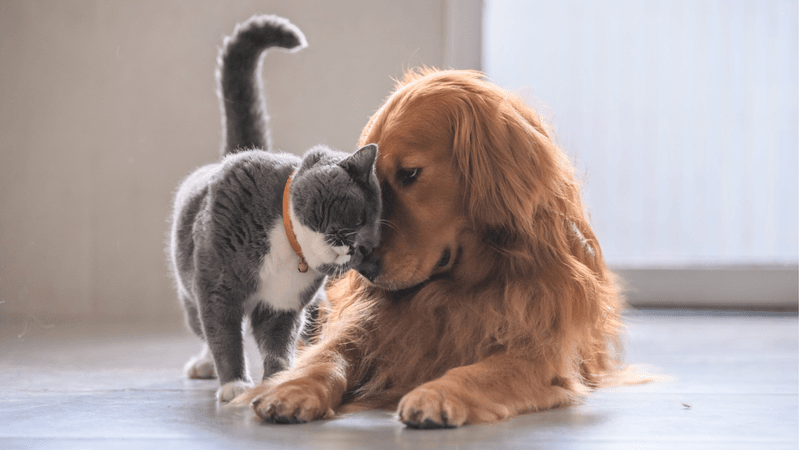
Respect is a cornerstone of any great relationship, including those between cats and dogs. Some cats appreciate the respect dogs show for boundaries, learning to trust them over time.
This mutual respect can lead to a deep and lasting friendship. Dogs, known for their loyalty and attentiveness, may quickly pick up on a cat’s signals, ensuring harmony. In return, cats may soften their independent nature, opening up to companionship.
This reciprocal respect highlights how cats and dogs can form meaningful bonds through understanding and acknowledging each other’s space.
Shared Adventures
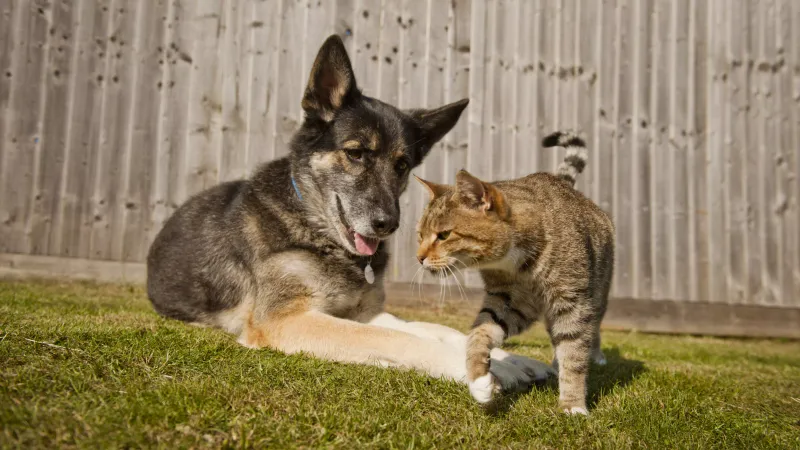
Sharing adventures can be a thrilling aspect of a cat and dog friendship. Some cats enjoy the excitement of outdoor activities that dogs naturally love, such as hiking or exploring new terrain.
These shared experiences create strong memories and tighten their bond. While not every cat will embrace the adventurous spirit, those who do find a joyful companion in a dog ready to explore the world.
The shared thrill of adventure and discovery can make dogs more appealing companions than other cats, offering excitement and companionship in one furry package.
Cozy Companionship
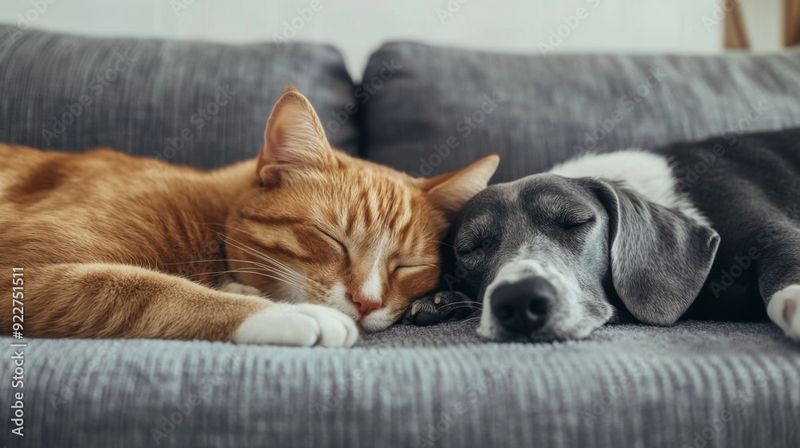
The warmth of companionship is a significant attraction for some cats. Dogs, known for their affectionate nature, often provide a cozy presence that cats find comforting.
Snuggling up with a warm dog can be a source of comfort for a cat looking for a soft spot to rest. This physical closeness fosters a sense of security and affection that strengthens their bond.
The cozy companionship offered by a dog might satisfy a cat’s craving for warmth and friendship in a way another cat might not. Their snuggly interactions exemplify the comfort found in cross-species friendships.
Non-Judgmental Friendship
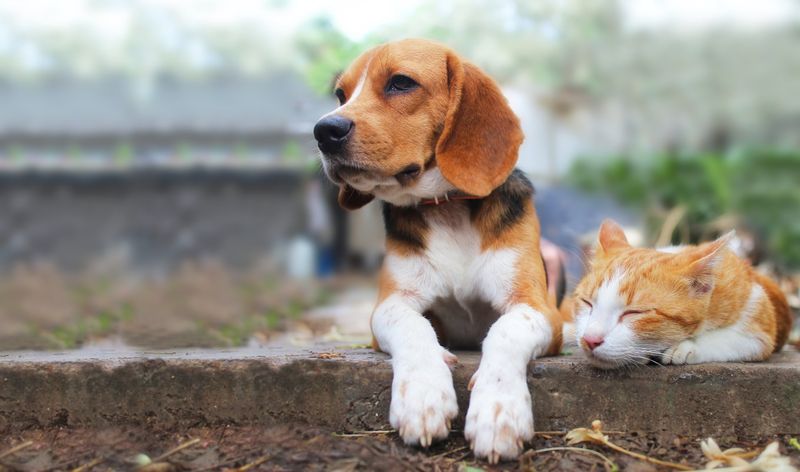
The non-judgmental nature of dogs can be a significant draw for cats seeking a judgment-free friendship. Dogs tend to accept their companions as they are, without the expectation of conforming to feline norms.
This acceptance allows cats to be themselves without feeling pressured to change, fostering a genuine and open friendship. Dogs’ forgiving and understanding demeanor can provide the perfect environment for a cat to thrive, ensuring a fulfilling companionship.
The simplicity of this non-judgmental relationship can be a refreshing change for cats accustomed to the complexities of feline social hierarchies.
Unconditional Loyalty
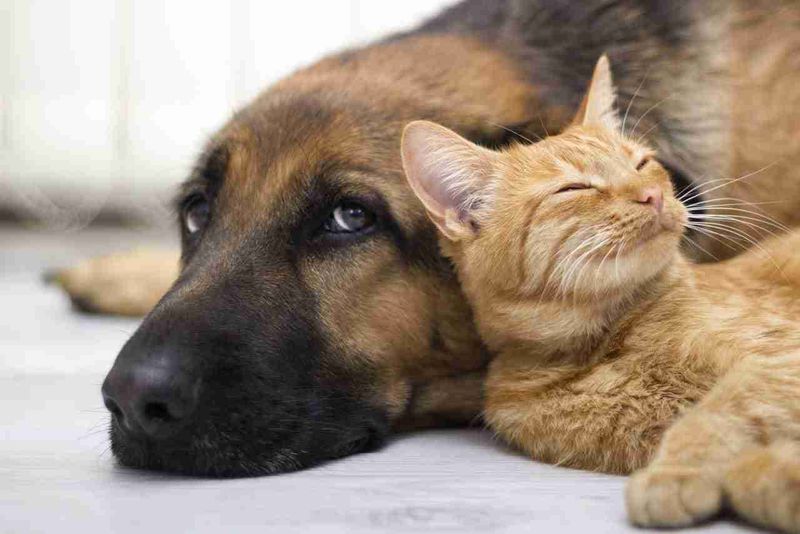
Unconditional loyalty is a trait that many dogs possess, and it’s something that cats often appreciate. For a cat, having a steadfast companion who is always there can be incredibly comforting.
Dogs’ loyalty ensures they remain by their cat friend’s side through thick and thin, providing a consistent source of support. This unwavering dedication can be a major factor in why some cats prefer dogs over other cats, whose independence might not offer the same guaranteed companionship.
The assurance of unwavering loyalty makes dogs cherished friends in the eyes of many cats.
Gentle Patience
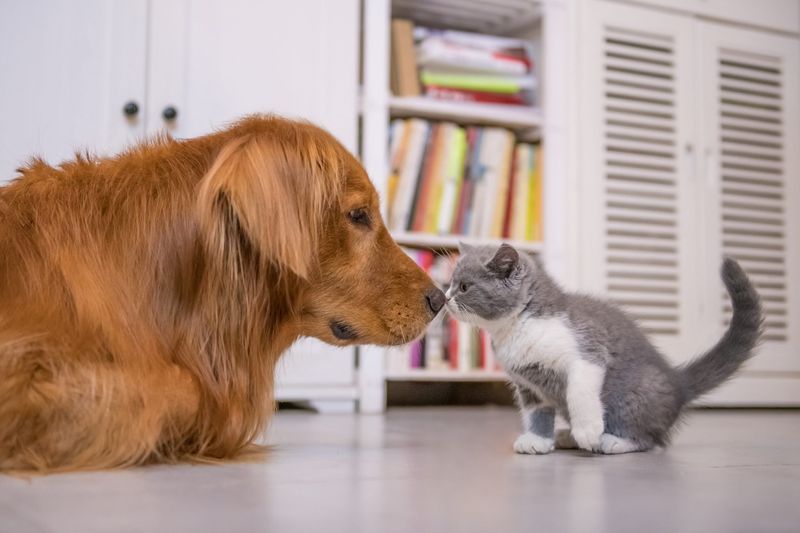
Gentle patience is a quality that some cats find appealing in dogs. Dogs often exhibit patience, waiting calmly for a cat to warm up or explore at its own pace.
This patience can make cats feel comfortable and accepted, allowing them to approach the friendship on their terms. Cats might appreciate this gentle nature, as it offers them the freedom to initiate interactions without pressure.
The patient demeanor of a dog can encourage a hesitant cat to form a bond, proving that patience indeed paves the way for harmonious relationships.
Laughter and Joy
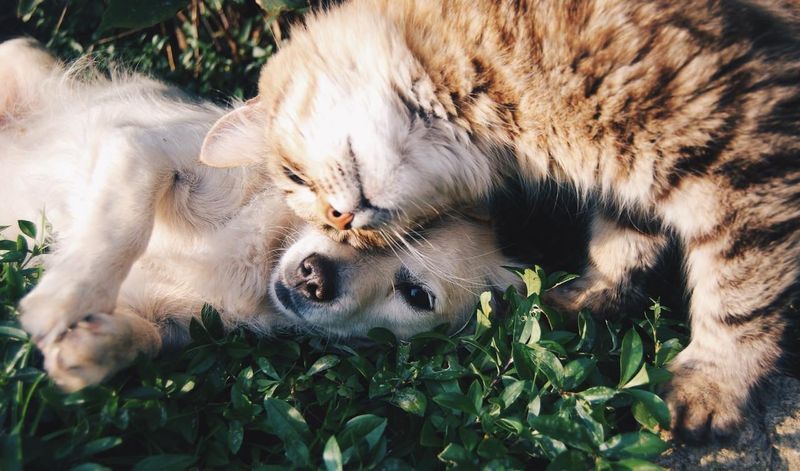
The ability to bring laughter and joy is perhaps one of the most delightful reasons cats may prefer dogs. Dogs’ playful antics and infectious energy can brighten a cat’s day, creating a lively and uplifting atmosphere.
Whether it’s a silly game or a funny bark, dogs have a knack for spreading happiness. This joyful interaction can be a refreshing escape for cats, providing a sense of fun that might not be present in a cat-only household.
The happiness that dogs bring can make them the preferred companions, spreading smiles and building strong, joyful bonds.

